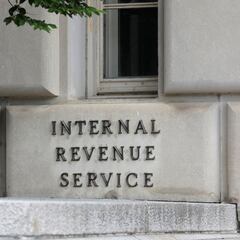Tax Season 2021: Reasons why the IRS is delayed in sending out tax returns
The tax filing in the United States has passed, and the IRS warns that receiving a return may take a little longer than usual this year.


Usually, taxpayers receive their returns within twenty-one days of filing. This year, the IRS has stated that some could see delays in receiving their return. There are two main reasons the IRS is experiencing delays in getting taxpayers their returns promptly. The first is the last-minute changes to the tax code under the American Rescue Plan passed in March. The second is a backlog of paper returns from 2019 that the IRS is still working through.
Changes made under the American Rescue Plan
E-file is accurate and easy. What’s more, it prevents delays in the processing of your tax return. Learn more about filing your taxes electronically from #IRS at: https://t.co/MyEyXuAj57 pic.twitter.com/OPFEvnDYTb
— IRSnews (@IRSnews) April 30, 2021
The American Rescue Plan made changes to the tax code and tasked the IRS with distributing the third batch of stimulus checks. While the tax authority has already distributed two checks, this is a significant undertaking for the organization which began sending checks as millions began filing their taxes. To date, the IRS has distributed over 165 million payments worth a combined total of around 388 billion dollars.
Those who were eligible to receive a stimulus check but did not were able to claim the Recovery Rebate when they filed their taxes. Nearly 1 in 3 individuals who have requested the rebate have had their return flagged for manual verification by an IRS employee. This process has created delays as many employees must take the time to verify if the request is valid.
In addition, the American Rescue Plan allowed those who have received unemployment payments to exclude $10,200 in unemployment benefits from being taxed. The IRS reported that nearly ten million people filed their taxes before the law was passed, and their returns have had to be adjusted based on the new taxable income. The US tax authority has begun sending the corrected returns and will continue to do so throughout the summer. The agency will start with simple returns, including those without dependents.
Related stories
The 1.8 trillion dollar stimulus bill also made changes to the Earned Income Tax Credit for childless workers. Under the new law, “more childless workers and couples can qualify for the Earned Income Tax Credit (EITC), a fully refundable tax benefit that helps many low- and moderate-income workers and working families.” The American Rescue Plan tripled the maximum credit able to be received and “for the first time, made available to both younger workers and senior citizens.” These changes will also alter the amount of money owed to many taxpayers, and the IRS is working to correct the returns and send out the payments.
Backlog from 2019
The IRS has been working through a backlog of paper tax returns filed in 2019. When the covid-19 pandemic hit, the IRS was forced to shut its doors, and in the time it was closed, a backlog of 2019 returns began to pile up. According to CBS, in March, the IRS still had 2.4 million returns from 2019 to process

